Categorization skills Numbers Worksheets for Ages 5-8
5 filtered results
-
From - To
Discover engaging Categorization Skills Numbers Worksheets designed specifically for ages 5-8 at Kids Academy! These expertly crafted worksheets help young learners develop essential categorization and math skills in a fun and interactive way. Through various exercises, children can practice sorting, grouping, and organizing numbers, enhancing their ability to recognize patterns and relationships. With colorful visuals and easy-to-follow instructions, these printables ensure that learning remains exciting and effective. Ideal for both classroom and home use, Kids Academy makes mastering numbers an enjoyable journey. Start exploring today and give your child the tools they need to excel in math!
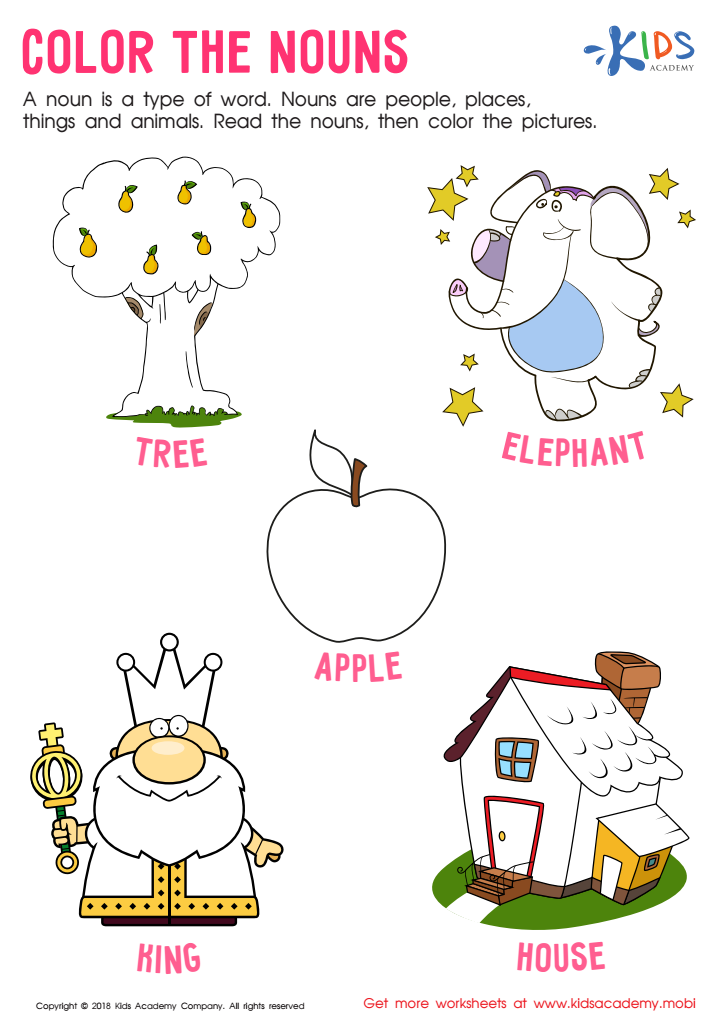

Color the Nouns Worksheet
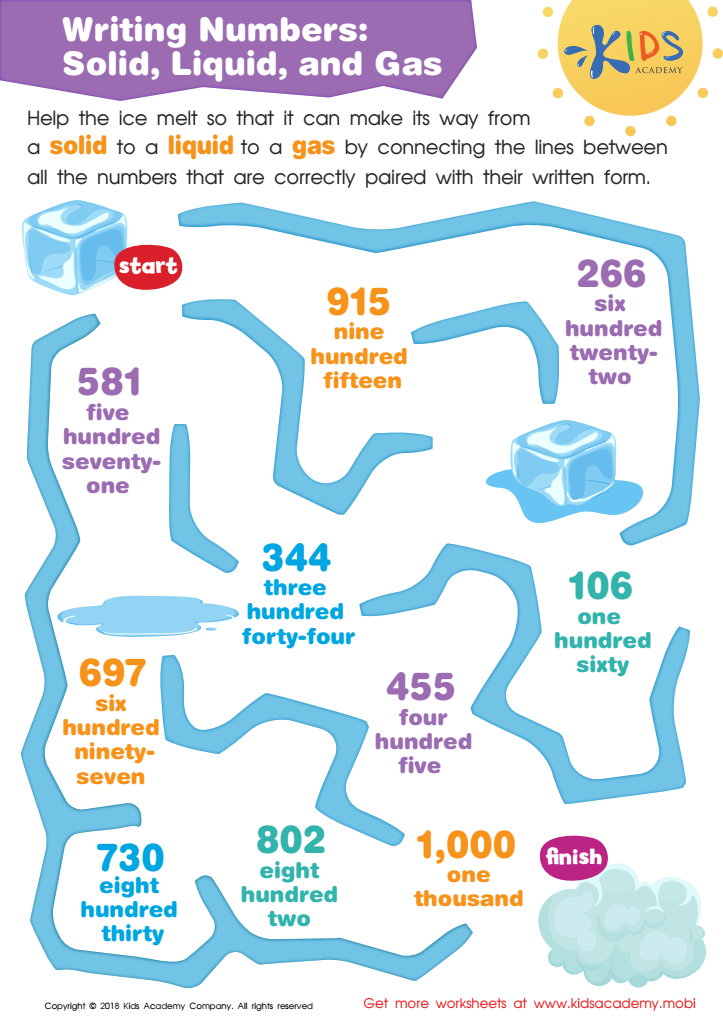

Solid, Liquid, and Gas Writing Numbers Worksheet
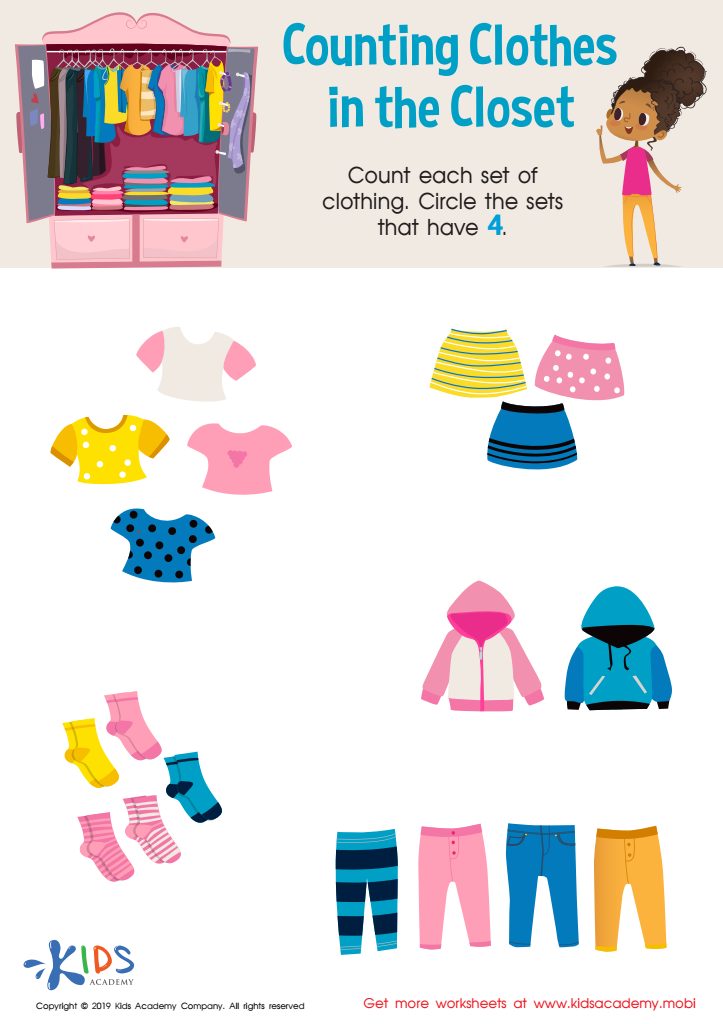

Counting Clothes Worksheet
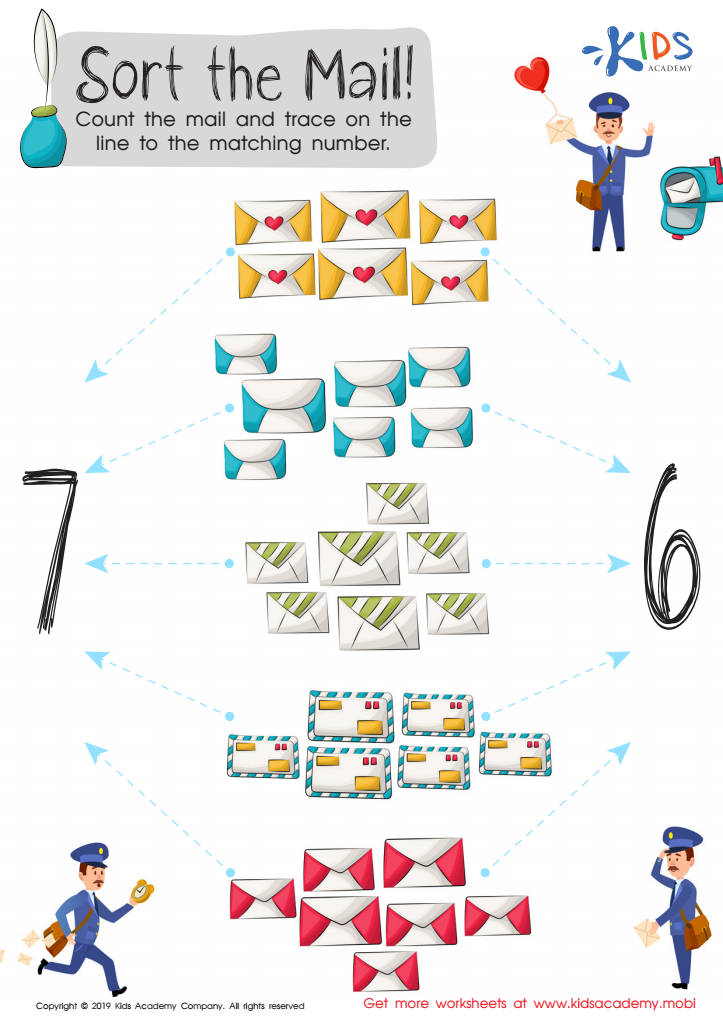

Sort the Mail Worksheet
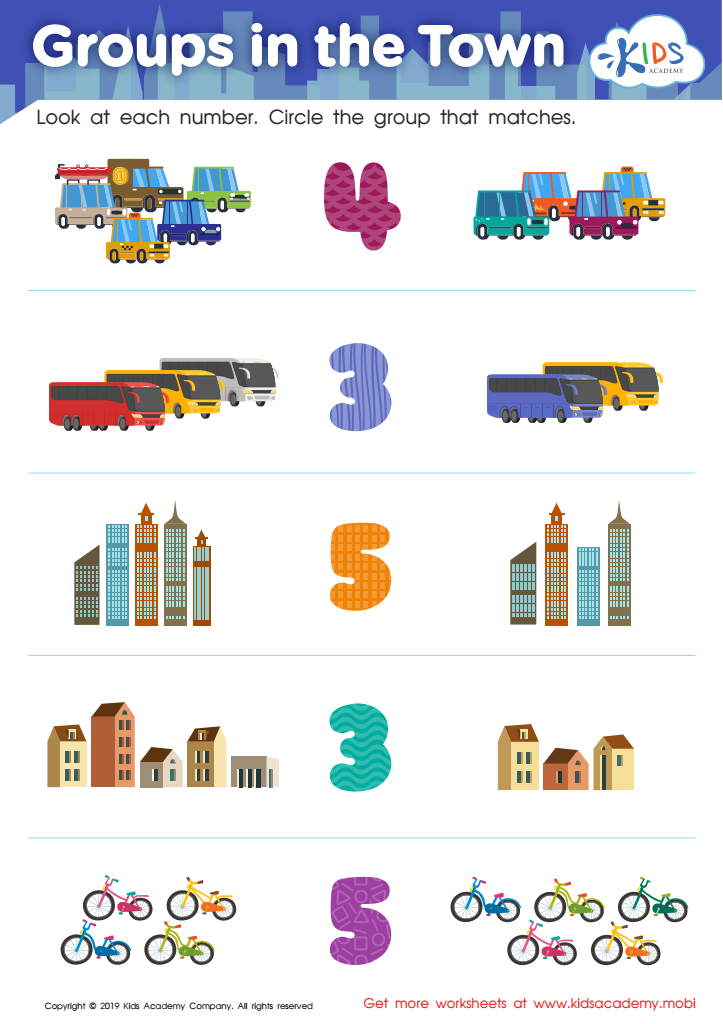

Groups in the Town Worksheet
Categorization skills and an understanding of numbers for children aged 5-8 are crucial for their developmental growth, equipping them with essential cognitive abilities and foundational knowledge.
Firstly, categorization allows young children to organize their world, making sense of their environment by grouping similar objects or ideas. This ability aids in the development of critical thinking, helping children analyze information, recognize patterns, and develop problem-solving strategies. Once children learn to categorize, they can more easily comprehend more complex concepts later in life.
Simultaneously, a firm grasp of numbers introduces children to the basics of arithmetic and quantitative reasoning. Numbers are the foundation of more advanced math and science concepts, and mastering them at a young age can foster confidence and curiosity in these subjects. Learning to count, recognize numbers, and perform simple calculations helps children develop numerical literacy, which is essential for everyday tasks and future academic success.
Together, these skills contribute to effective learning and mental flexibility. Encouraging categorization and numeric skills stimulates both cognitive development and curiosity, setting a robust educational foundation that supports lifelong learning and resilience against future academic challenges. Parents and teachers who prioritize these early skills play a vital role in ensuring a child's holistic intellectual growth and readiness for more complex concepts.
 Assign to My Students
Assign to My Students




















